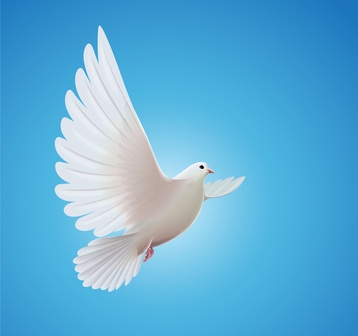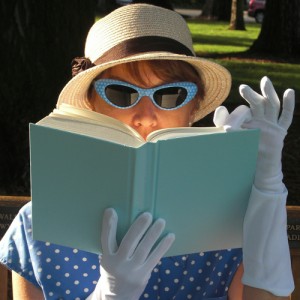Whose big idea was it to consider handshaking an acceptable practice?
According to Wikipedia (that trusted resource written by anybody with the ability to login and type), the handshake has been around since the time of the ancient Greeks. The custom was meant to show that the bearer of the hand had no weapon. “See? Nothing up my toga.”
What compelled the other Greek to grasp the hand and shake it? Was it to see if anything fell out of the toga, if there was a weapon stuffed up the sleeve?
What those toga-wearing philosophizers hadn’t considered was the lowly bacteria; the secret weapon invisible to the naked eye. That outstretched hand…who knows where it’s been? It could be lined with the plague. Or a skin-eating organism. Or fish from last night’s dinner.
Usually I try to have my hands occupied so I don’t have to engage in mutual shaking. But there I was, sitting on the examination table in the orthopedic department at the hospital wearing paper shorts, when Dr. Bloomberg walked in, his hand thrust out for a good hearty shake.
The fact that Dr. Bloomberg hadn’t washed his hands first led me to believe that he wasn’t a real doctor. I came to this conclusion because the nurse, after ushering me into the exam room, told me there was a doctor in the department who used to be an air conditioning repairman in the hospital. This was in answer to my question, “What’s the difference between a physiatrist and a physiologist?” There was more to the nurse’s answer, but that was the only part I heard.
The gloveless Dr. Bloomberg, I feared, was the repairman.
“So, what’s going on with your hip?” the fake doctor asked.
I explained that my hip hurt when I walked, it hurt when I slept, it hurt when I sit and it hurt when I got up from sitting. I told him I’d tried physical therapy and chiropractic and yoga, I’d tried ignoring it and babying it and icing it and heating it, and the pain had been going on for years now and I had a pretty good idea that what I had was bursitis, and I wanted a shot. I wanted a shot of cortisone, providing I wouldn’t suffer any horrible side effects, like sudden death. “And by the way, what’s the difference between a physiatrist and a physiologist?” I asked.
He felt my hip, and then sat on his little rolling stool. “A physiatrist,” he explained, “works in rehabilitation departments. Physiology is the science of rehabilitation.” He said more than that, but that’s all I needed to hear; he sounded legit. Or well-read. When he had run out of story about his medical background, he gave his quads a light tap with his palms and stood.
“I’m going to go fill up,” he said, “and then I’ll give you your shot.”
And off he went.
To fill up.
Five minutes later he returned. Full.
“Ready?” he asked. This time he didn’t offer a hand to shake, but they both looked empty. What had he filled? Was it stuffed up his sleeve? Those Greeks might have been onto something.
I turned onto my side and faced the wall. He snapped on some gloves, slid the waistband of my shorts down, and felt around for the tenderest spot on my hip. Nothing. He asked me to find the tenderest spot. Nothing. “Well, I’ll just pick a spot,” he said, and did, and it must have been the rightest, most tenderest spot, because when he inserted the needle the pain lifted me off the exam table. I think I levitated for five minutes before he withdrew the needle.
“There,” he said. “That’s it. You should feel better immediately.” Anything would feel better than having a needle jabbed in your bursa. He pulled off the gloves. “Let me know how you’re doing in a couple of weeks,” he said.
And thrust out his hand to shake.



